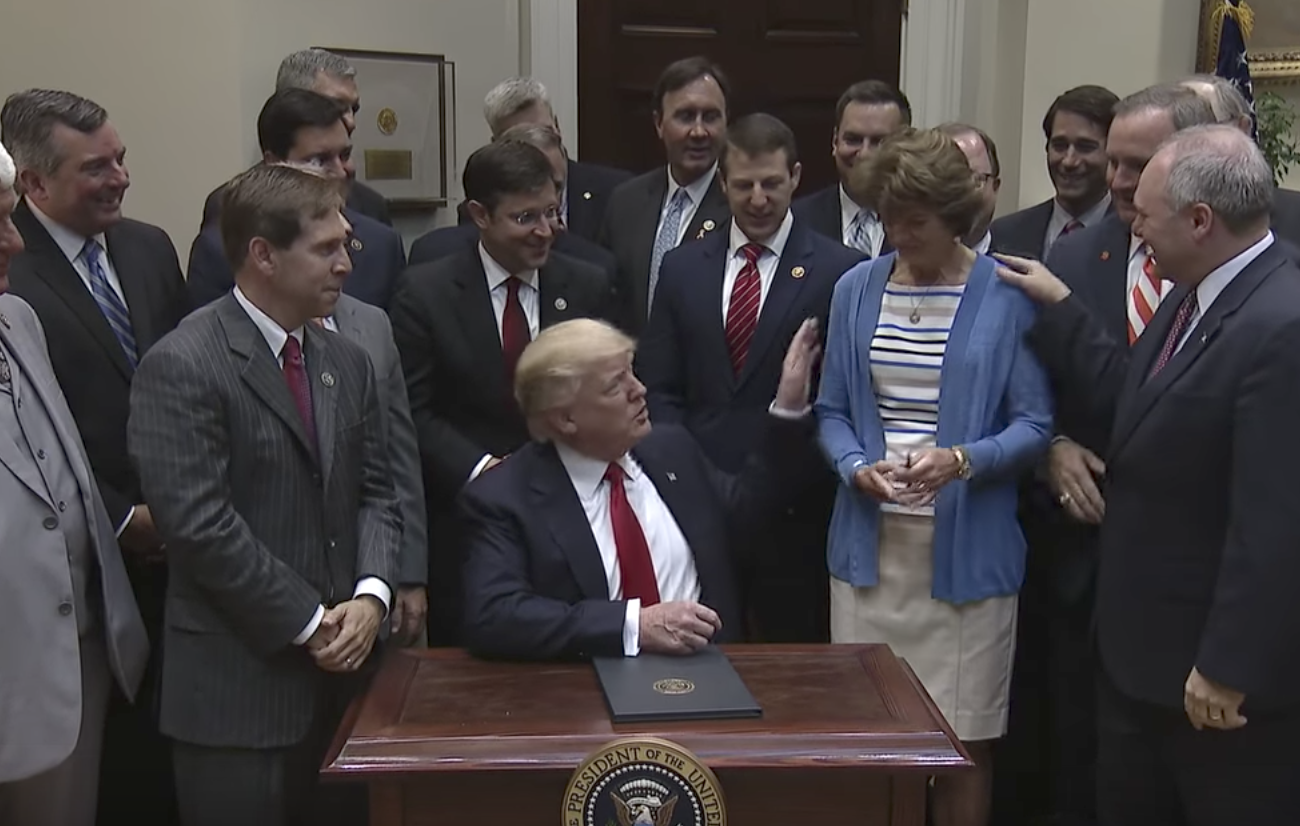Earlier this year, the Obama Administration blocked permits to allow seismic testing to determine how much oil and natural gas reserves there are in the Atlantic Outer-Continental Shelf (OCS).
The Trump Administration, however, is reversing his predecessor's policy, as the National Marine Fisheries Service is expected this week to request five Marine Mammal Protection Act permits to allow seismic testing in the Atlantic.
“Today's decision by the Trump administration should be applauded by us all," said Fred Palmer, senior fellow for energy and climate at the non-partisan Heartland Institute. "More than any President in modern times, President Trump understands the importance of fossil fuel development for our future well-being, prosperity and quality of life for all Americans."
The Atlantic OCS lies off the shores of the mid-Atlantic states, stretching from Virginia to Georgia. Previous testing, completed about 30 years ago, showed the Atlantic OCS could hold as much as 4.7 billion barrels of oil and 37 trillion cubic feet of natural gas, but some experts believe the reserves could be far greater.
"Relying on mapping made 30 years ago just doesn’t make sense," retired Capt. James McCormick, a Bronze and Silver Star recipient and program director of Vets4Energy, told American Security News. "Current reconnaissance using modern technology will tell us exactly what energy exists offshore. Having access to that current information is crucial to making intelligent decisions."
The administration’s actions are the latest step in the its “America First Energy Plan,” which Palmer says "recognizes that we succeed in the United States because of our use of fossil fuels, not in spite of them."
As part of that plan, President Trump signed an executive order on April 28, 2017 implementing "an America-first offshore energy strategy." Among other items, that executive order calls on the Secretary of the Interior to "develop and implement, in coordination with the Secretary of Commerce and to the maximum extent permitted by law, a streamlined permitting approach for privately funded seismic data research and collection aimed at expeditiously determining the offshore energy resource potential of the United States within the Planning Areas."
“The U.S. Department of the Interior, under the capable leadership of Secretary Zinke, will issue the necessary permits for ocean exploration," added Palmer.
The expected issuance of the permits was criticized by the National Resources Defense Council (NRDC), which released a statement today saying the administration's move is "a license for energy companies—in their relentless drive for more fossil fuels—to devastate marine wildlife."
"Scientists warn that seismic activity alone could drive the endangered North Atlantic right whale to extinction," said Michael Jasny, director of the NRDC's Marine Mammal Protection Project.
A 2014 document issued by the Bureau of Ocean Management, however, found a lack of scientific evidence of the risk of seismic testing.
"There has been no documented scientific evidence of noise from air guns used in geological and geophysical (G&G) seismic activities adversely affecting marine animal populations or coastal communities," wrote the BOEM's chief environmental officer, William Y. Brown, in a August 22, 2014 "Science Note" published by the bureau.
“The American people can be confident that the permits will be conditioned to protect marine life and the natural environment around them, even as the fossil fuels produced for use by all Americans improves the human environment where we live and work,” concluded Palmer.


 Alerts Sign-up
Alerts Sign-up